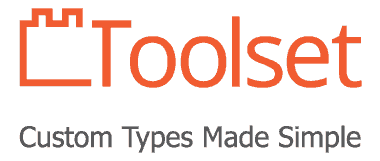BlackBox 3City is a fan-based larp stage. We launched in autumn 2014 and since that day we run larp games for a local community. Our main goal is to promote larping both as a really cool, multidimensional hobby and a slowly, but steady growing branch of the art and entertainment business. In order to achieve those goals, we rarely experiment. More often we run for our players well-tested print&play scenarios. Therefore we stick to the ones available online under Creative Commons Licence. But from time to time we invite authors to be our guest stars and run their own games.
Right now we are in the middle of our 5th season. There are 60 events and about 80 games behind us. Constantly growing fanbase gives us a sensation of doing something important. We want to continue our work and develop the areas that need improvement.
Lately we managed to complete an important project: we’ve built new backend architecture of our website. As in many similar projects, changes are not visible for a typical user (everything is working right?). But for us it’s a big step in terms of our work efficiency. It means less bugs, errors and last but not least — managing the same content spread in different places.
How we achieved it?
First of all, let’s debug a common myth. When it comes to running your own online site there is saying you either learn how to code or you are doomed to have a generic-looking website. Is it really so?
If you work with WordPress, at first glance it seems that the answer is: yes. Either you are able to dive a little into the html kingdome or… What else is there? Asking (again!) your IT friend for another piece of advice? Just how many “thank you” dinners one can afford?
Luckily, that’s not a case anymore. There is a bunch user friendly solutions equally suitable for professionals and non-professionals out there — and we are happy to be using one of them — the Toolset.

How exactly Toolset helps us?
When you take a look at our site you’re gonna notice pretty quick that there is lot of content that overlap and interact. We run our games during events. Some of the popular games were presented multiple times, during many occasions. There are authors who write their scenarios alone, but a vast majority like to do a collaboration from time to time. Larps we run vary in terms of the genre. There are heroic fantasy sagas, SciFi space operas, victorian horror, dystopian cyberpunk — just to name a few most popular ones. They all need to be run in a corresponding venue.
All of that informations need to be delivered to our audience in a friendly way, with no mistakes. It had seemed easy at the beginning, but as more and more data gathered on our server we lost capability of doing any changes. When all of the data were spread among many posts, making one tiny patch in game’s author name or venue website address required either going through dozens of posts and making tiny, precise amendments everywhere… Or just letting it go and accept the mess. We weren’t up to any of those. The answer we needed were
Custom Post Types
CPT should rather be called Custom Content Types in our opinion. They are specific framework for any type of data or information you want to designate. In our case they are:
- events
- games
- people
- places
For example: the [Game No1], written by [Author No2] and [Author No3] was run during the [Event No4] at the [Place No5].
It took some time for us to create a database for all of those types mentioned above, but definitely worth it. Now if anything needs upgrade, it’s enough to alter it at one place. Period.
Toolset took our hearts with types, but it has got much more to offer. Exploring its possibilities led us to change the whole look and usability of our homepage. The next thing we discovered were…
Views
There are many ways to display informations. Some things should be on the left, other on the right… The truth is, it’s hard to hit bull’s eye at first shot. It’s always weeks of tries and errors, before you create a view that your audience needs. And will appreciate. After few different attempts we have our way of displaying things. Now imagine we know it… And all we gotta do is to apply it manually to over 100 pages that hold games’ descriptions.
Thanks to Toolset, there was no need of doing so. We created views — certain ways of presenting each of our post types. If one day we decide the look needs to change, all we have to do is to correct the view, instead of all the pages of that type.
CRED (CReate and EDit forms)
Larps are a strange mix of art and entertainment. The same is true for their creators. We love having guests — all of them flamboyant personalities. Do you know how to work in an efficient and enjoyable way with this tribe? Give a space to express themselves. And don’t ask to many questions.
Description of each larp holds a bunch of information. Some are basic and simple (duration, number of players, genre) but some are much more developed. We always publish a short “narrative” description, kept in the tone of a genre. Except that there is always a “specific” description with more detailed informations, game rules, trigger warnings e.t.c.
All of the above need to gathered and published. What was an experiment at first, now turned into an effective procedure. Via Toolset we created a CRED for authors starring at our events. They fill the form, Toolset turns it into a game-type post and all we need to do before making it public is to check for grammar and style — and give it a go.
Layouts
During the process of rebuilt a question arose. Do we want games to be displayed the same ways that events are?
Not really. Larps need more a catalogue style presentation, because they hold the informations users rather come back to, browsing it leisurely. On the other hands events are something our audience look for and need all the important info from and now. When it starts? What characters are available? Do I need to prepare costume?…
The next thing we did after designating the types, was designing the layouts for the most crucial ones we’ve got. And Toolset gave us a great way to do it. We work with it the same way we do with “views”. We make tiny corrections from to time to time, adjusting it to suit the ways viewers interact with our content.
The last we used were…
Maps
Maps obviously are connected to the venues where our larps take place. Gathered data presents that over 60% of our users enter our homepage on mobile devices. When the venue is announced, one of the first things they check is the event’s location. Again, Toolset turned out to be the many-sided WordPress plug-in we needed.
Summary
Out of the main Toolset’s components the only one we dont’ use on the regular basis is Access – a function that lets you add custom user roles and manage their prerogatives. All the other once, mentioned above, enabled us to build a user (and administrator) friendly homepage.
As our project grew, Toolset turned out to be the right answer to our needs. We highly recommend it for anyone facing success in upcoming time. If your portal to the digital word is built on wordpress engine — befriend with this handy and versatile plug-in sooner than later.

